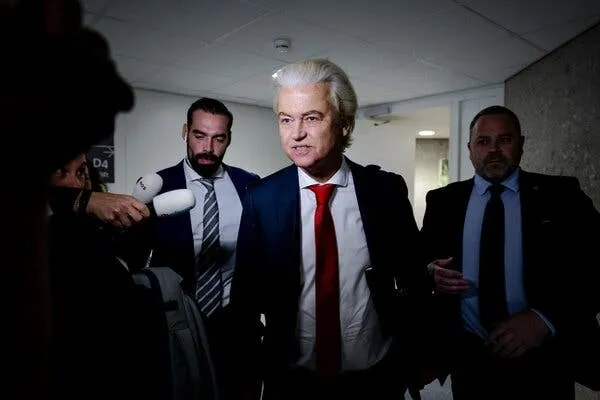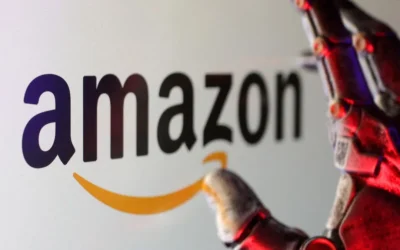Dutch Government Collapses Following Key Withdrawal
In a surprising turn of events that has sent shockwaves through Europe, the Dutch government has collapsed after Geert Wilders, leader of the right-wing Party for Freedom (PVV), withdrew his support. This decision comes on the heels of contentious debates surrounding immigration policies that have polarized the nation. Prime Minister Dick Schoof, unable to maintain a coalition in the face of this departure, has announced his resignation, ushering in a period of political uncertainty for the Netherlands.
The Collapse of Coalition Politics
Coalition governments have long been the norm in the Netherlands, necessitating cooperation among various parties to achieve a majority. Schoof’s government was a coalition of four parties, with Wilders’ PVV playing a crucial role in ensuring a balance of power. However, as immigration proposals took center stage, tensions grew, leading to the eventual fallout.
Wilders has been a vocal critic of the current immigration policies, which he believes do not adequately protect Dutch citizens. He claimed that proposed reforms were too lenient, pushing for stricter measures that align more closely with the interests of his party’s base. His departure from the coalition represents not just a personal decision, but also a wider rejection of policies perceived as being too favorable towards immigrants.
Implications of Wilders’ Withdrawal
The implications of Wilders’ exit are manifold. For one, it leaves the remaining coalition partners scrambling to fill a significant political void. The traditional parties in the coalition, primarily centrist and left-leaning, may find it challenging to navigate the political landscape without the support of the far-right PVV. Political analysts argue that Wilders was a stabilizing force within the coalition, despite his controversial stance on many issues.
Moreover, the collapse raises questions about the future of immigration policy in the Netherlands. With public sentiment increasingly split on the issue, any efforts to reform immigration laws will need to be approached with caution. Opposition parties, bolstered by Wilders’ departure, may press for more stringent measures that resonate with nationalist sentiments, further complicating the landscape.
The Political Landscape Post-Collapse
In an immediate response to the political upheaval, Prime Minister Dick Schoof met with President Mark Rutte, discussing potential avenues amidst the fallout. Following their discussions, Schoof emphasized the need for a unified approach to governance even in the face of adversity. He remarked, “The responsibility to govern effectively still lies with us, and we must act quickly to ensure stability during this turbulent time.”
The prime minister’s resignation is noteworthy, considering he was initially seen as a unifying figure within the coalition. His exit could lead to the rise of new leadership or even a prospective shift in party control, depending on how the subsequent elections unfold.
Public Reaction and Sentiment
Public reaction to the collapse has been mixed. Many supporters of the PVV welcomed Wilders’ decision, viewing it as a courageous stand against a governmental system that they feel has failed them. On the other hand, those who oppose the far-right rhetoric expressed deep concerns about the potential for increased polarization and xenophobia following the coalition’s breakdown.
Social media has seen an uptick in discussions surrounding the implications of the government’s collapse. Hashtags such as #DutchPolitics and #WildersResigns have trended, reflecting a heightened level of engagement among the populace. Political commentators have noted the significant emotions surrounding the debate on immigration, with many fearing a swing toward more extreme measures from the right.
The Way Forward: Elections on the Horizon?
As political analysts speculate about the potential for early elections, the future of the Dutch government is in flux. With no clear successor to Schoof and the potential for various parties to stake their claims for leadership, the likelihood of immediate elections appears imminent.
The opposition parties, particularly those that historically advocated for progressive immigration reform and inclusivity, stand to gain the most from the current situation. They are already mobilizing resources to counter the potential rise of further right-wing populism that could emerge in the vacuum left by Wilders’ exit. Potential new alliances are also being discussed to unify forces against the growing nationalism within Dutch politics.
The Broader European Context
The collapse of the Dutch government raises critical questions not just for the Netherlands, but for the entirety of Europe. With far-right populism on the rise in several EU member states, the dynamics of immigration policy and national identity are becoming focal points of political discourse. As the Netherlands grapples with its identity and future, other nations are watching closely.
The recent rise of far-right parties in countries like France, Italy, and Sweden serves as a reminder that the challenges posed by immigration are not isolated to the Netherlands. Europe as a whole is facing an ongoing identity crisis in the context of globalization and migration, which could influence election results worldwide.
Conclusion: A Pivotal Moment for Dutch Politics
The recent political upheaval in the Netherlands represents a potential turning point in the country’s governance and societal norms. With the coalition government’s collapse came a stark reminder of the fragility of political alliances, especially amid highly contentious issues like immigration.
The outcome of this crisis may also impact the wider European political landscape and the future of liberal democracy on the continent. As the Netherlands prepares for what could be significant electoral changes, the stakes are high for both the immediate political future and the broader societal implications. The coming months will be critical as citizens await new leadership and direction in an increasingly polarized world.






